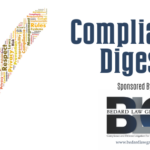EDITOR’S NOTE: This article has been updated to reflect corrected information about the en banc statistics for the Eleventh Circuit Court of Appeals and share en banc statistics for other Courts of Appeals.
The defendant in a case ruled on last week by the Eleventh Circuit Court of Appeals which determined that sending a consumer’s personal information to a letter vendor constituted a communication under the Fair Debt Collection Practices Act has a 50-50 shot of getting the entire panel of judges from the Eleventh Circuit to re-hear the case if the Appeals Court seeks to poll its members about whether the case should be re-heard, should the defendant choose to seek an en banc hearing.
The Eleventh Circuit has granted an en banc rehearing on 29 of the 58 occasions it has polled all of its panel of judges during the past five years, according to its website. The Eleventh Circuit does not appear to publish the number of en banc petitions it receives, just the cases where a poll of the judges is conducted.
Arguments in the case – Hunstein v. Preferred Collection and Management Services, Inc. – were heard before a three-judge panel, chosen from the group of 12 judges who sit on the Eleventh Circuit. An en banc request can be made to have the Court vacate the original ruling from the three-judge panel and have all 12 judges re-hear arguments in the case. Parties have only 21 days from the date the opinion was filed to petition the Court for an en banc rehearing. The deadline in this case is May 12.
In most Circuits, granting en banc requests is usually a long shot. The Ninth Circuit received 955 petitions for rehearing en banc in 2018, took a on only 17 of those petitions, and granted eight of those. Eight out of 955 is a success rate of 0.84%. The Fourth Circuit has disclosed that it grants en banc petitions in about 0.3% of cases, while the Fifth Circuit granted four out of 198 petitions in a recent year.
The ruling in this case has upended the accounts receivable management industry, with many wondering whether they can still outsource production of their collection letters to third parties and what other types of outsourcing arrangements may also potentially lead to lawsuits. Plaintiff’s attorneys have started filing class-action lawsuits making similar allegations as those in the Hunstein case. Attorneys speaking on an AccountsRecovery.net webinar on the topic last Friday urged the industry to not make any rash decisions in the wake of this ruling.
“I think there are workarounds,” said Manny Newburger of Barron & Newburger. “I think there are solutions that may be cost effective. And I don’t think you just start blowing up all of your compliance tools and saying, ‘That’s it, we have to start over.’ Pause and engage and kick the ideas around and don’t jump to do things too quickly. I think it’s far better to kick ideas around, think about them for a day or two, and come back and look at them again, then to start rushing into sudden big changes at great cost.”
A full copy of the webinar is available below.









